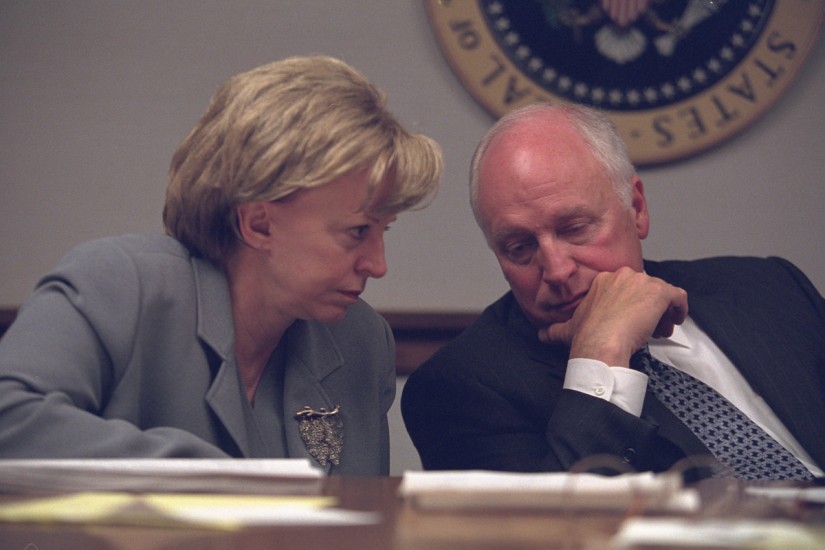Commander Anthony Barnes: The president was safer aboard Air Force One than trying to come home, and Mr. Cheney—without question—he was in charge. He was in charge of the space and we would bring him information.
To defend the nation from the surprise attack, government officials inside the PEOC called upon the military and the small number of fighter aircraft ready at bases across the Northeast, coordinated through the Northeast Air Defense Sector (NEADS) headquarters in Rome, New York.
Col. Bob Marr, commander, NEADS: We were in foreign territory; we are used to protecting the shores, way out overseas. Our processes and procedures weren’t designed for this.
Major General Larry Arnold, commander, 1st Air Force, Continental United States North American Aerospace Defense Command, Tyndall Air Force Base, Florida: We can’t see the aircraft. We don’t know where it is because we don’t have any radars pointing into the U.S. Anything in the United States was considered friendly by definition.
Lt. Heather “Lucky” Penney, F-16 pilot, D.C. Air National Guard, Andrews Air Force Base, Maryland: Our chain of command didn’t go up to NORAD [North American Aerospace Defense Command], didn’t go up through the First Air Force, which oversaw operations in the United States. They had no method to be able to reach down—or even be able to know that the D.C. National Guard was there and available. There were no rules of engagement. I hadn’t even thought about what that kind of mission might be like on American soil.
Commander Anthony Barnes: I was running liaison between the ops guys who had Pentagon officials on the phone and the conference room [in the PEOC] where the principals were. The Pentagon thought there was another hijacked airplane, and they were asking for permission to shoot down an identified hijacked commercial aircraft. I asked the vice president that question and he answered it in the affirmative. I asked again to be sure. “Sir, I am confirming that you have given permission?” For me, being a military member and an aviator—understanding the absolute depth of what that question was and what that answer was—I wanted to make sure that there was no mistake whatsoever about what was being asked. Without hesitation, in the affirmative, he said any confirmed hijacked airplane may be engaged and shot down.
Col. Matthew Klimow, executive assistant to the Vice Chair of the Joint Chiefs of Staff, General Richard Myers, Pentagon: No one had ever contemplated the need to shoot down a civilian airliner.
